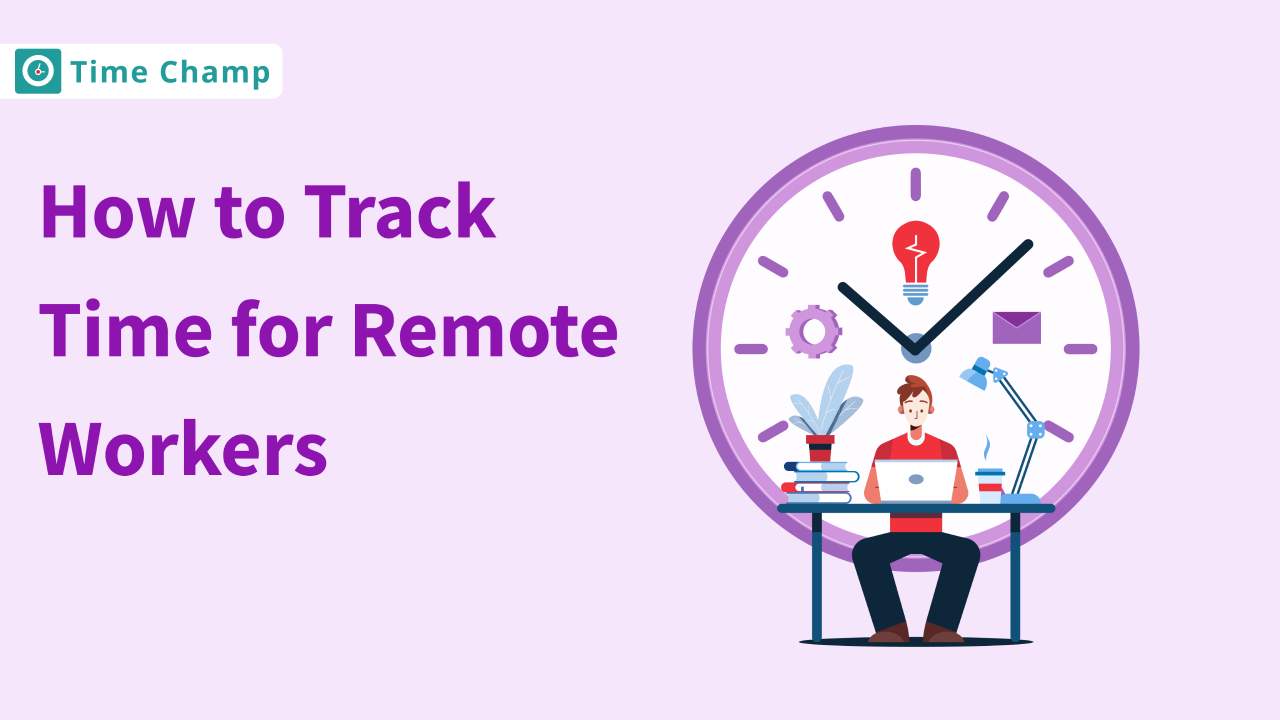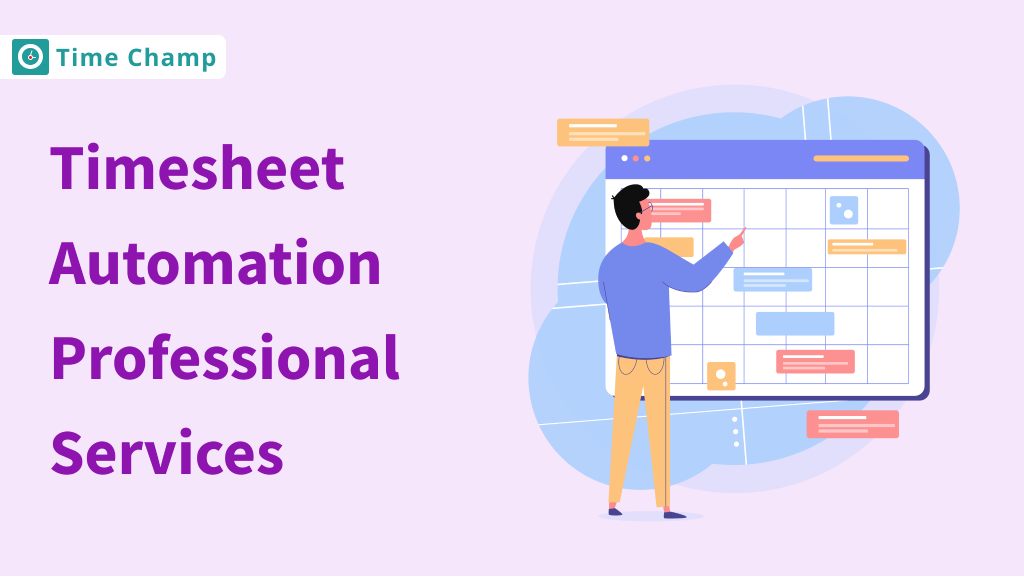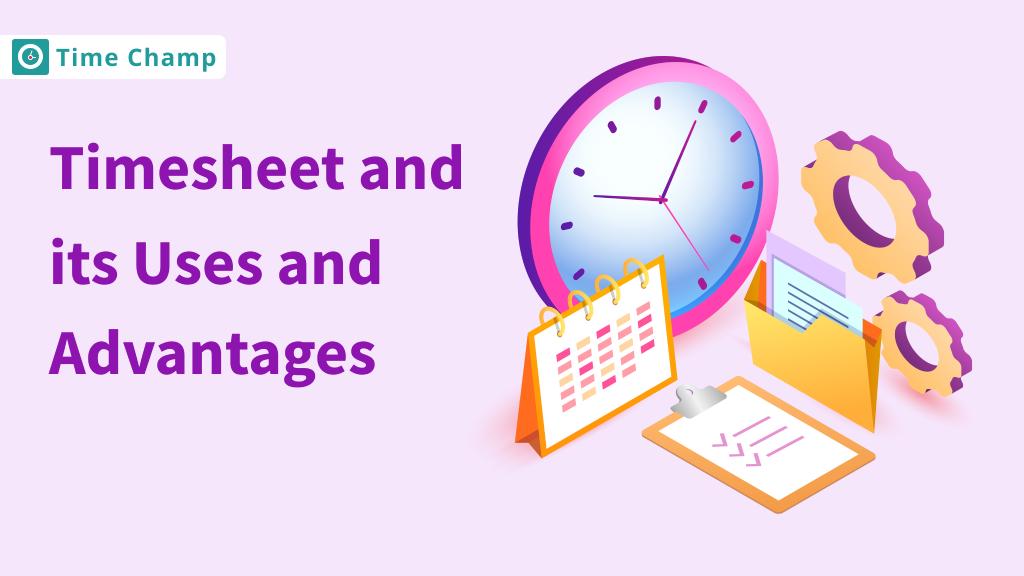As a manager, you know that time is
one of your most valuable resources.
But imagine waking up to a day
without time tracking.
At
first, it might seem like a relief,
but trust me—it can quickly turn
into a manager’s worst
nightmare!
Without those
important hours logged, chaos can
easily take over your team’s
workflow. Accountability can slip
through the cracks, and project
timelines can start feeling like a
game of chance.
As Peter Drucker
famously said, ‘What gets
measured gets managed. In this
blog, we’ll dig into the pitfalls of
a day without time tracking and why
keeping an eye on those hours is
crucial for your team’s success. So
grab your favorite cup of coffee and
explore what happens when the clock
stops ticking!
The Importance of Time Tracking for Managers
Time
tracking is considered an
essential activity that needs to be
done.
However, for managers, it
is a strategic asset that can make a
huge difference in workforce
performance. In this
section, we’ll provide a detailed
analysis of why time tracking is a
must-have and how it can be used to
achieve goals.
Why Time Tracking is Crucial in the Workplace
Time tracking has several useful advantages that can help improve your team’s productivity.
- First, it enables you to allocate resources by showing how each team member spends their working time. If the project seems to take longer than you estimated, you can change tasks, hire more people, or use your resources better.
- Also, time tracking helps you see which activities take a lot of time. For example, if you realize that many employees spend a larger amount of time on paperwork, you can search for ways of making it easier or training them to work faster.
- Tracking time gives responsibility. When employees track their hours, they take ownership of their work. This keeps them responsible and may result in greater performance.
- Finally, time tracking helps keep a good work-life balance. It shows if employees are working too much or if some people have too much work while others have too little. Once you address those problems, you can ensure that work is divided fairly, reduce stress, and support a healthy work-life balance.
Time Tracking as a Tool for Budgeting and Forecasting
- When making a budget, you need to know how much things cost, especially when paying workers. Time tracking shows how much time is spent on different tasks and projects, and how much that work costs. This helps you make better budgets and stop wasting money. For example, if the costs of a project exceed your expectations because of excess hours, then time tracking can spot all these cases and bring them to your notice.
- When you charge clients for hours worked,time tracking is very important to see costs and make sure bills are correct. It tells you how much time is spent on each part of a project, so clients are charged the right amount. This careful tracking helps reduce errors and builds trust for clients really keeping the business strong.
Time Tracking for Employee Performance and Development
- Time tracking provides information about how employees spend their working hours, enabling you to make a fair evaluation of their work. This data-based approach provides subjective impressions, thus making the performance reviews as accurate as possible.
- Time tracking provides information that helps you identify employees who require further training and development. If an employee spends more time completing tasks than others, it may indicate a skill gap or inefficiencies, allowing you to tailor development programs to meet their needs.
- Time tracking data is useful in setting realistic and attainable performance standards, as it reveals the time required to complete certain tasks or projects. This enables you to set targets that are realistic while still stretching the organization.
- Accurate time tracking provides you with detailed records to give precise feedback to the employees. It is more effective than generic recommendations that are based on assumptions about the time spent on tasks and projects. For instance, if the time spent on a specific task is significantly high, you can suggest ways to manage that time more effectively or determine if the employee needs additional assistance.
What Happens When Time Tracking Fails
Lack of Visibility into Time Usage
When time tracking fails , you lose insight into how employees are utilizing their working hours. This lack of visibility makes it difficult to find unproductive activities or inefficiencies. When there isn’t any data about this, you can’t find whether employees are managing their tasks efficiently or struggling to meet their deadlines. This can lead to difficulties in balancing workloads, supporting team members, and making informed decisions about resource allocation.
Inaccurate Billing and Payroll
Without tracking time, you cannot measure the time spent on different projects which influences client billing and payroll processing. In cases where clients are billed per hour, inaccurate time tracking can cause a disparity in the amount charged to the client, which may lead to disagreements and strained relations. Also, employees may be paid the wrong amount, which is not good for morale within the company. Such discrepancies can lead to financial problems in the organization and erode the trust of clients and employees.
Challenges in Performance Evaluation
You do not get a clear picture of how your employees are performing, which causes difficulty in conducting performance appraisals. Without this information, evaluations can be more subjective and less consistent, which makes it difficult to give feedback or identify star players. Consequently, you may lose potential for growth and development, which in turn influences the morale and productivity of the team.
Increases Administrative Work
Without time tracking, it results in a lot of additional paperwork. As a manager, you need to fix mistakes and double-check the recorded time. Lack of proper data leads to spending more time on activities such as manually correcting the timesheets, solving the differences, and verifying records, which takes focus away from the actual work. This additional work not only takes time and effort but also increases the likelihood of additional errors.
Inaccuracies and Errors in Timesheet Data
When tracking time goes wrong, inaccuracies and mistakes in the timesheets are the norm, which creates several issues. This can lead to the provision of wrong information to the management since employees may record the wrong hours or allocate time to the wrong project. Such inaccuracies can lead to inaccuracy in billing and payroll, confusion in project management, and distortion of performance assessments.
Difficulty in Project Management
When tracking time fails, it becomes a major issue in your project management process. When you do not have a clear idea of how much time is required for different activities, you cannot track the project’s progress and manage resources efficiently. This lack of visibility hampers the ability to determine where the problems are, how the team is performing, and whether the deadlines are going to be met. Consequently, projects can quickly derail, and this leads to time delays, cost control issues, and overall pressure on your team.
Accountability Issues
When time tracking fails,
accountability issues occur. It
becomes difficult who is supposed to
do what and achieve what. If there
are no records, it becomes difficult
to know if the team members are
performing their duties or if they
are meeting deadlines.
Other
practices such as buddy punching
whereby an employee signs in or out
for another, and the entry of wrong
time data also exacerbate this
problem, eroding trust and making it
hard to discipline people for the
number of hours they have worked.
Long-Term Consequences without Time Tracking
Missed Deadlines and Project Delays
When teams fail to track their time,
it becomes difficult to evaluate
progress made on projects. When
there is no proper understanding of
how long it takes to complete
certain tasks, it becomes easy to
miss deadlines.
Imagine a
marketing campaign that was planned
to be released in three months but
takes six months because the team
did not factor in the time required
to create the content and get it
approved. This not only annoys the
clients but also affects the image
of the organization negatively. In
the long run, the failure to meet
deadlines creates a culture where
everyone in the team gets used to
working under pressure for the last
minute. The ripple effects can lead
to the accumulation of projects
which in turn forms a cycle of delay
that is difficult to break.
Overrun Budgets Due to Lack of Tracking
When time tracking is not properly
done, budgeting is just a mere
guess. Many teams fail to track the
time spent on different activities,
which results in additional
expenses.
For example, a
software development project may
have a budget in terms of hours, but
without accurate tracking of time,
the actual hours spent can easily exceed
the estimate. This not only
affects the profit and loss but can
also affect future projects as the
stakeholders become cautious of
over-committing resources. Sustained
budget issues lead to a lack of
trust between departments and
management, and thus, it becomes
almost impossible to obtain funding
for new projects. Lastly,
organizations face financial
pressure, which limits their
development and creativity.
Best Solutions for Time Tracking Failure
Leverage Robust Time Tracking Software
Having good
time-tracking software can
assist you in tracking the time you
spend on your work more effectively.
It enables you to know which
activities consume most of your time
so that you can better organize
yourself and be productive.
One of the best time
tracking software is Time
Champ for accurate time
tracking with a simple and intuitive
interface. It allows team members to
track time and monitor the progress
of the project. When it comes to
quick report generation, you can
easily determine where the problem
areas are and increase efficiency.
Implement Backup Systems and Redundancies
To avoid time-tracking failures, set
up backup systems. This means having
other ways
of tracking time such as
using spreadsheets
for tracking time or
manually entering the time in case
the software fails.
Also, it
is important to back up data to
prevent loss since it is at risk.
Having duplications in your
procedures will give you confidence
and protection against any mishaps.
Remind the team members that they
can use more than one method to log
their time if necessary. In this
way, you can keep things moving and
stay on schedule with projects, even
if there are some technical issues.
Enhance Team Communication and Workflow
Communication is very important when
it comes to time tracking to ensure
that the right time is recorded.
Encourage the team members to share
their workload and their progress
with the rest of the team. This way,
it will be easier to notice any
challenges that may be present and
address them before they get worse.
Promote the discussion of due
dates and other project-related
information. When everyone knows
their responsibilities and
deadlines, there is less confusion,
and everyone is on the same page. Effective
communication not only helps
to track time better but also
increases the morale of the team and
their efficiency.
Conclusion
Proper tracking of time is crucial in the achievement of goals, increased productivity, and morale of employees. Without it, organizations experience problems such as incorrect billing, unfair performance evaluation, and project delays, which result in financial losses and demotivated employees. Effective time-tracking tools and communication can help you to improve employee productivity, morale, and the overall organizational environment.
Don’t let a day without time tracking derail your projects.
Keep everything on track with Time Champ! Start using now!
Signup for FreeBook Demo



